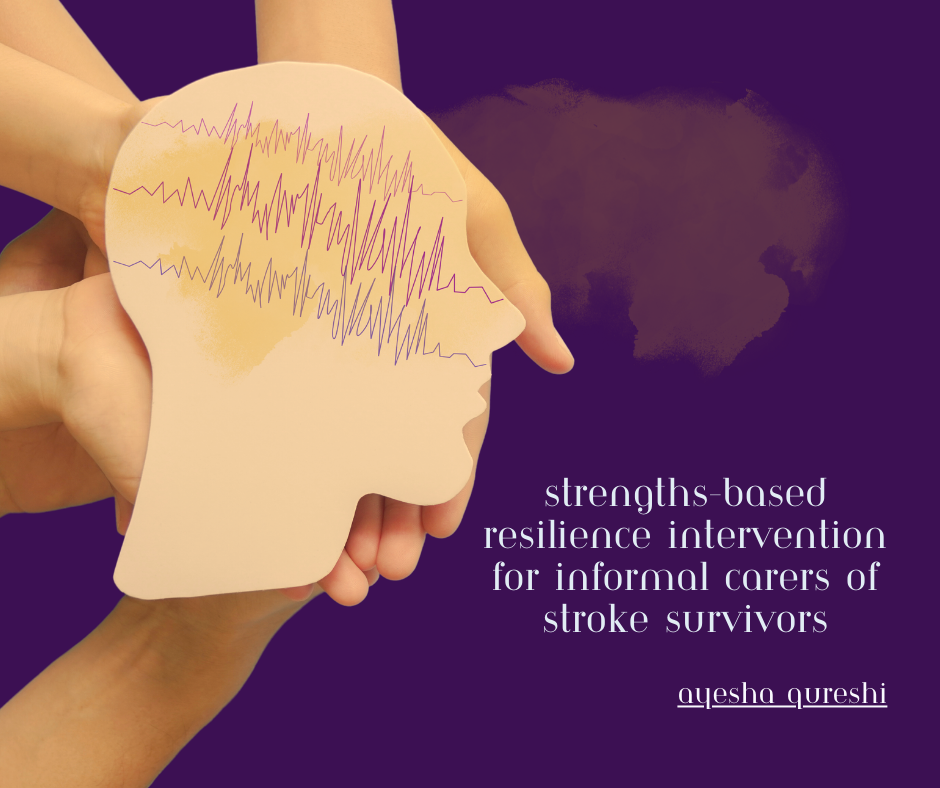Stroke is considered the most common cause of long-term and complex disability, often resulting in a combination of sensory, motor, and cognitive deficits. Stroke survivors return to live in the community, relying on informal carers such as family and friends to meet their needs of care and support. Carers play an important role in the recovery of stroke survivors from inpatient rehabilitation to returning home and integrating back into the community. The provision of informal care to stroke survivors within the community can be challenging and can be associated with significant emotional consequences, loss of relationships with family and friends, withdrawal from social activities and poor quality of life. Given these complexities along with the abruptness of stroke presentation and the subsequent stress of suddenly supporting a person with stroke, interventions that enhance carers’ ability to cope with and build resilience are of considerable importance.
The aim of the thesis was to develop a psychosocial intervention to improve resilience of informal carers of stroke survivors.
To address the aim, the adapted Medical Research Council (aMRC) Framework for developing health interventions was used. Initially, a systematic review of literature was undertaken to identify and synthesise the evidence of psychosocial interventions to build resilience of informal carers of stroke survivors.
Carers suggested an intervention comprising training in coping skills, optimal ways to communicate with stroke survivor, and connection with experienced carers.

